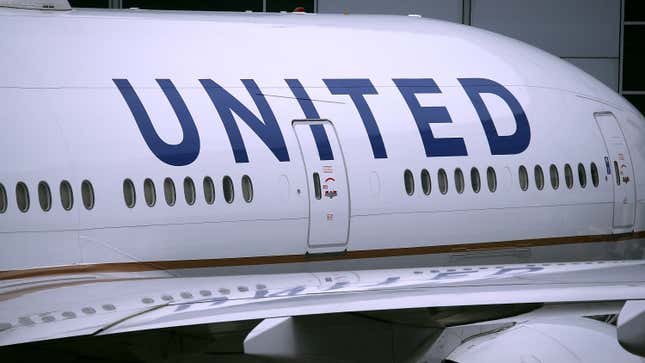
United Airlines announced this week that it’s investing in the growth of biometric screening technology in a bid to streamline passenger travel—even as big questions remain about how such technology impacts consumer privacy.
The airline says it’s making an unspecified equity investment in Clear, a company that matches passengers against scans of their irises and fingerprints in place of traditional identification checks. Additionally, United said it’s expanding its use of Clear technology to its Newark Liberty International Airport and Houston George Bush Intercontinental Airport hubs, and working to open Clear lanes at Chicago O’Hare in the months ahead.
As part of a newly announced partnership, United is offering free memberships to its Clear program—which costs $179 annually—to some of its most elite flyers with Global Services and Premier 1K. United’s Premier Platinum, Gold, and Silver members, as well as most other United cardholders, can sign up for the Clear program for $109 a year. MileagePlus members can pay a discounted rate of $119 for Clear access.
According to the Wall Street Journal, Clear operates out of more than 30 airports, in addition to arenas, stadiums, and some Hertz rental locations. United has already introduced Clear technology in airports in Denver, Los Angeles, San Francisco, and Washington Dulles, the airline said.
“Our new partnership with Clear is another proof point of how we are always looking to improve traveling with United, in this case by making the airport experience more convenient for customers,” Luc Bondar, vice president of loyalty and president of MileagePlus at United, said in a statement. “Clear’s secure and seamless biometric security option creates an expedited travel experience that many of our frequent flyers already use and love.”
Those who champion the use of biometric data in place of traditional ID checks at airport security checkpoints have positioned the technology as a way of streamlining an often congested and frustrating system. But the use of biometric screening raises some serious privacy and surveillance questions, such as how this type of data will be stored and who will have access to it. Airlines, for their part, have not been especially forthright about their use of such technology.
As just one example, writer MacKenzie Fegan in April questioned JetBlue Airways on Twitter over the airline’s use of facial recognition in place of a traditional boarding pass. The technology, which has been used in several U.S. airports, is evidently optional. But while JetBlue claimed that collected images “aren’t provided to us, but are securely transmitted to the Customs and Border Protection database,” transparency around the security protocols in place for this transmission of data has been opaque at best.
A United Airlines spokesperson did not immediately return a request for comment on Monday about its own data protection protocols. Clear also did not immediately return a request for comment.
Once again, the use of this technology demands we ask: Is handing over your biometric data in spite of serious surveillance and privacy questions really worth shaving a little time off your travel itinerary? Hell no.